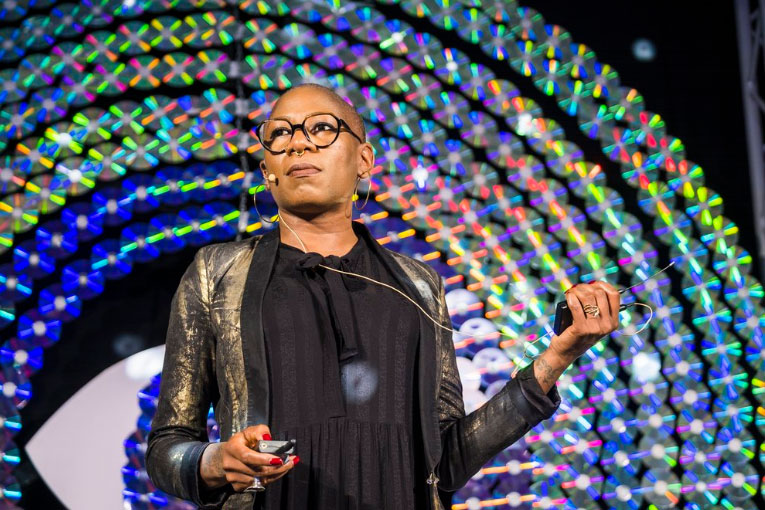
Adah gives her top tips for female tech managers to create an effective working culture. Adah has worked in the tech sector throughout her career, as a Mentor to We In Social Tech and Mentor for TechUp (Durham University) and Board Advisor at Cyborg Nest. In 2020, 2021 and 2022, she was nominated as one of the Most Influential Women in UK Technology.
THE TECHNOLOGY SECTOR HAS ALWAYS BEEN KNOWN AS A FAST-PACED INDUSTRY THAT REQUIRES HARD WORK, PASSION, AND COMMITMENT.
However, from personal experience, I believe that for a long time there has been a dangerous narrative within the sector, particularly in start-ups. There is often an expectation to sacrifice all your down time to the cause.
This attitude, which is often perpetuated for the desire to secure funding in a crowded sector, can create an unsafe working culture that negatively impacts employee mental health and affects everyone from senior leaders, to managers and new starters. Research from AppDynamics found 89% of tech professionals feel immense pressure at work, with 84% reporting they experience difficulty switching off from work.
When these pressures combine with the intersectional nature of our identities, it can result in a negative working environment. For anyone who is female, non-binary, trans, a Person of the Global Majority, Queer, neurodiverse or has other protected characteristics, they can be more likely to be on the receiving end of micro-aggressions, gaslighting, and micro-invalidations. All of which takes a further toll on mental health.
We need to take action to challenge damaging views and behaviours in our workplaces and create environments where everyone is able to bring their whole self to work. While employers have a responsibility to put wider organisation support and structure in place, as a tech manager you can play a fundamental role in helping to create workplaces where good mental health, wellbeing and productivity can thrive.
INVESTING IN TECH MANAGERS
Brilliant people do not become brilliant managers by accident. You need the training, time and tools to do the job of managing well. Research shows that managers have as much impact on a person’s mental health as their partner. I encourage you to be a compassionate leader who is confident having conversations about mental health.
Many people may find starting these conversations difficult, but they don’t need to be. Taking the time to check-in with your employees, both formally and informally, can help you understand more about what is working well and what isn’t. These could take the form of regular one-to-one meetings. With the right support, you can have constructive, empathetic, and sometimes lifesaving conversations with your team.
As part of MHFA England’s free My Whole Self Managers Toolkit, they have developed a framework which provides considerations and questions for managers to ask at different stages throughout the employee lifecycle. This toolkit includes a template for one-to-one meetings to support positive conversations about wellbeing and performance. This will help you to go outside of your “cultural fit” and be a better active ally to your employees.
CREATING FRAMEWORKS FOR SUCCESS
Although you play an important role in creating an effective work culture as a manager, there must be a wider framework of support that is at the heart of a company’s work culture. This should start at the top with the creation of a holistic mental health and wellbeing strategy, endorsed and promoted by senior leadership and delivered through HR. I’d encourage managers to get in touch with their HR team, both routinely and in their initial interview, to check that job design, recruitment and onboarding policies in their organisation promotes the wellbeing of their staff. Culture change won’t be effective if senior leaders don’t change with the organisation, while progress is possible, managers should never stay working within a toxic environment.
Similarly, whole organisational strategies should be informed by the employees they represent. They should constantly evaluate and adapt to create a workplace where everybody – men, women, trans, non-binary and gender fluid people can thrive. It is important that organisations and HR teams create policies that help people to recognise their biases by doing more than simply one off “unconscious bias workshops”. This can include support programmes and mentoring, but that only works if the environments in which we work are also “doing the work” to not just be inclusive but instead create cultures of belonging.
BEING AN ACTIVE ALLY
As a manager you must be an active ally to those who may not share your own experiences, such as trans women, or People of the Global Majority. Good managers are inclusive on purpose, they don’t make assumptions and they demonstrate empathy, compassion and know when to be a silent but ever present ally.
Your day-to-day actions reflect and reinforce the wider values of the organisation. During the onboarding process, make sure employees are aware of what support is available and be explicit that it is available for them. This may include initiatives such as an Employee Assistance Programme (EAP), in-house counselling, Mental Health First Aiders (MHFAiders®) and Employee Resource Groups (ERGs).
To be an excellent manager, you need to make sure everyone knows they are welcome and that the company values different lived experiences. Take deliberate action to understand your team members, choose your language carefully and make sure everyone is seen, heard and valued.
You can play an important role in helping to build effective and healthy working cultures in our sector. However, this can only happen if organisations recognise that there must be a change in their working culture. Change can be uncomfortable, it’s supposed to be, but with the right support and guidance for all, including the systems and structures and the potential for innovation, growth, and future-proofing – your organisation can become an effective and caring workplace.







